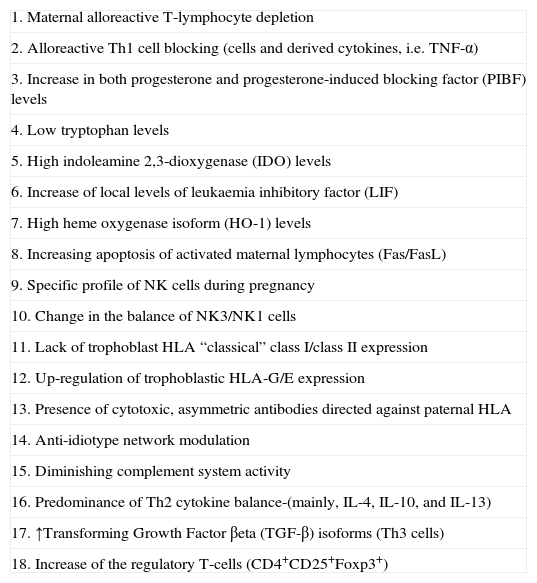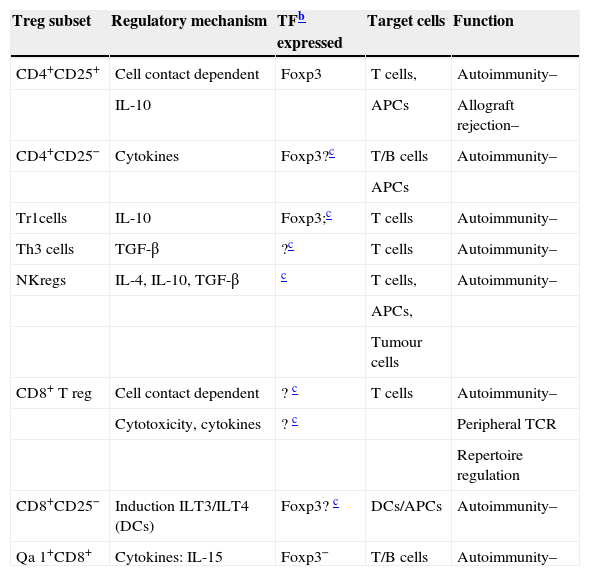Because maternal alloreactive lymphocytes are not depleted during pregnancy, local and/or systemic mechanisms have to play a key role in altering the maternal immune response. Peripheral T regulatory cells (pTregs) at the maternal–foetal interface are necessary in situ to prevent early abortion, but only those pTregs that have been previously exposed to paternal alloantigens. It has been showed that pregnancy selectively stimulates the accumulation of maternal Foxp3+CD4+CD25+ (Foxp3Tregs) cells with foetal specificity. Interestingly, after delivery, foetal-specific pTregs persist at elevated levels, maintain tolerance to pre-existing foetal antigen, and rapidly re-accumulate during subsequent pregnancy. pTreg up-regulation could be hypothesized as a possible future therapeutic strategy in humans.
Considerando que los linfocitos T alorreactivos no son completamente eliminados durante la gestación, parece necesario que haya otros mecanismos locales y/o generales que colaboren en la modificación de la respuesta inmunitaria materna. Los linfocitos T reguladores periféricos (Tregs-p) de la interfaz maternofetal previamente expuestos a antígenos paternos son necesarios in situ para prevenir el aborto precoz. Se ha demostrado que durante la gestación se produce una acumulación de Tregs-p Foxp3+ CD4+CD25+ con especificidad para ciertos antígenos fetales. Tras la gestación, estos Tregs-p con especificidad para antígenos fetales persisten a títulos elevados y mantienen la tolerancia materna, incrementando su número y funcionalidad en la siguiente gestación. El incremento de los Tregs-p podría ser una nueva y esperanzadora estrategia terapéutica en humanos.









